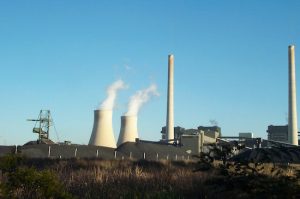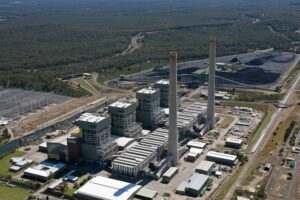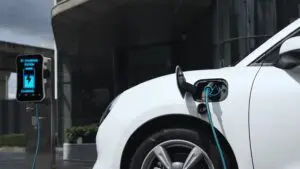Swedish climate activist Greta Thunberg has called on Germany to keep using its running nuclear plants instead of increasing coal power.
Speaking with German TV station ARD, the founder of the Fridays for Future student protest movement said it was a “mistake to close them down in order to focus on coal.”
“It’s a very bad idea to focus on coal when this is already in place,” Thunberg told public broadcaster ARD in an interview. “If we have them already running, I feel like it’s a mistake to close them down in order to focus on coal.”
Thunberg’s remarks drew support from nuclear advocates not usually associated with strong climate action.
Germany is in the midst of debating how to postpone its nuclear exit scheduled for the end of this year, in a reaction to the energy crisis and a looming shortage of gas.
Only three nuclear plants remain in operation and under current law will be decommissioned in December. The country has already agreed to put decommissioned coal power plants back on the grid to secure energy supply in the short term.
Debate continues over fate of nuclear plants
Following the results of a “stress test”, economy minister Robert Habeck (Green Party) proposed keeping 2 nuclear power plants in the south of the country “in emergency reserve” until 15 April 2023.
But disagreements within the German government coalition have stalled the passing of a corresponding draft law.
The cabinet decision’s delay could put the prolonged operations of Isar 2 plant in Bavaria into question, as urgent repair work is needed to keep the plant running safely past its original decommissioning date.
The pro-business Free Democrats (FDP), part of Germany’s government coalition, has so far blocked the agreement on a draft bill.
The party wants all three nuclear plants to continue to operate not only until spring, but until the energy crisis is over, as well as to procure new fuel rods, and is considering reactivating old nuclear power plants, according to a report in newsletter Tagesspiegel Background.
The FDP is often criticised by activists for its lack of climate action, for example because it opposes a speed limit in Germany’s motorways.
But party representatives and other nuclear proponents were quick to highlight Thunberg’s remarks. Party head and finance minister Christian Lindner said he welcomed Thunberg’s endorsement of “the FDP position.”
It’s all about context
Thunberg warned against taking remarks out of context, tweeting “Today as always, it’s important to watch out for those who only listen to the uncomfortable truth when it fits in their agenda. To tackle this crisis, cherry picking some aspects, taking things out of context and ignoring the rest will lead us nowhere. It only fuels culture wars.”
The FDP could use Thunberg’s statement to increase its pressure on the coalition as it wants to step up its role in the national government’s coalition following an electoral defeat in Lower Saxony, according to media reports.
Meanwhile, the Greens urge for a quick solution. “If you are serious about a solution for this winter, you should not stop this bill now,” said parliamentary group head Katharina Dröge.
Government advisors have called for Germany to use nuclear power until the end of the energy crisis, while environmental groups have criticised the decision to keep the plants in reserve. Nuclear plant operators have agreed to extend operations until 2023.
This article was originally published by Clean Energy Wire. Republished here with permission. To read the original version of the story, click here.










